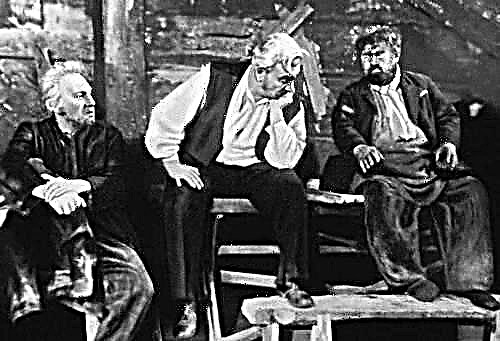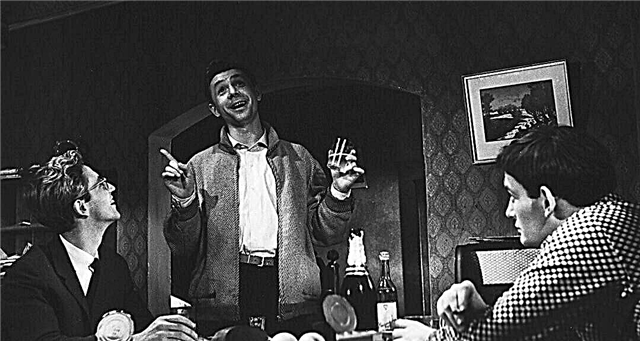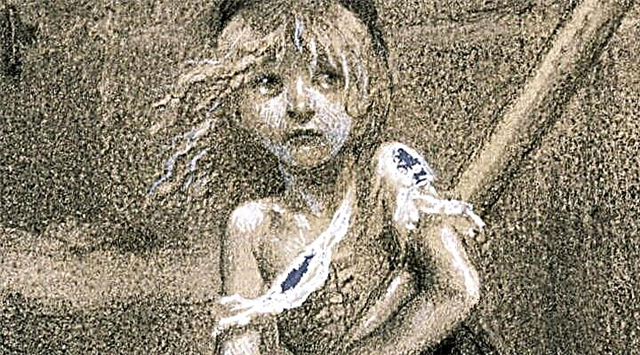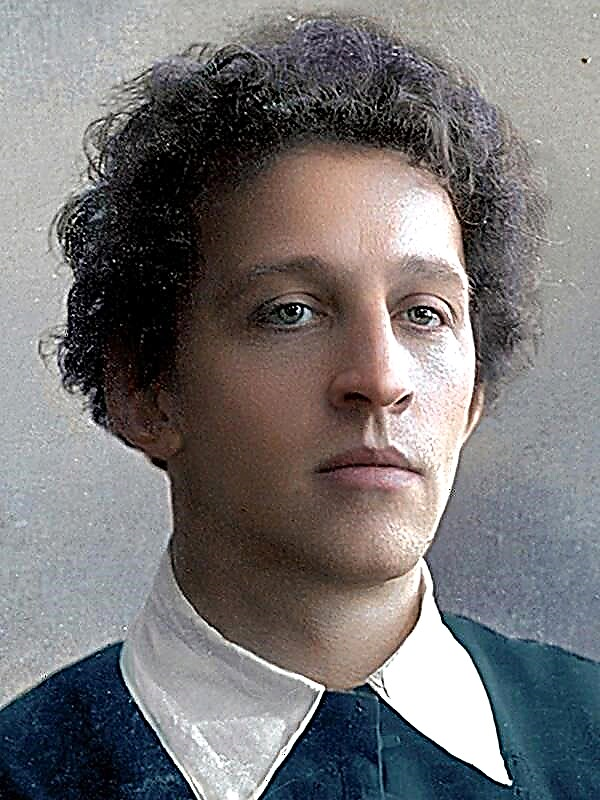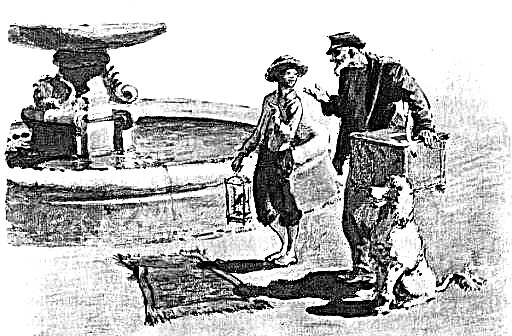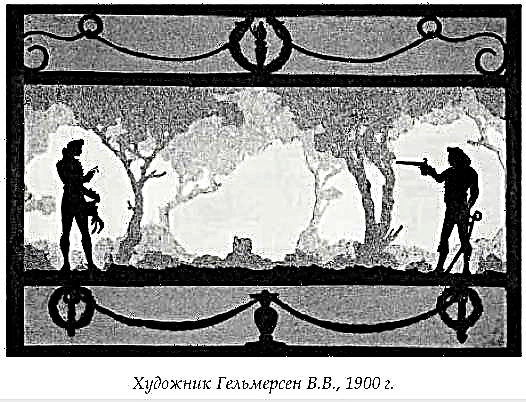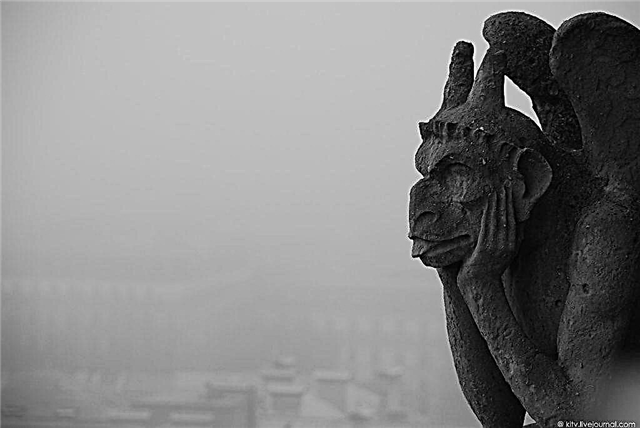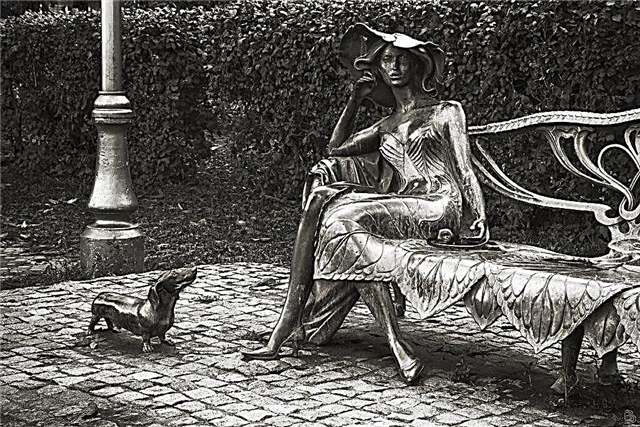Trading and business life is in full swing in all the streets and alleys of Kitay Gorod, when, on a fine September morning, Andrei Dmitrievich Paltusov, a thirty-five-year-old nobleman of a noticeable and peculiar appearance, who recently returned to Moscow, enters the bank on Ilyinka and meets the director there, his old friend Evgraf Petrovich. Having talked about how far Russian people are still behind the Germans in financial matters, Andrei Dmitrievich transfers a fair amount of money to his current account, and then goes to a bar on Varvarka, where he has already appointed breakfast with construction contractor Sergei Stepanovich Kalakutsky. It turns out that Paltusov is eager to get rich, having set out to study at the Gostiny Dvor Titi Titych, and thus become one of the “pioneer” nobles in a business where foreigners and merchants reign for the time being, but he needs initiative to succeed. Having assumed the duties of an “agent” Kalakutsky, he moves to Nikolskaya, to the Slavyansky Bazar restaurant, where he conspires to dine at the Hermitage with Ivan Alekseevich Pirozhkov, whom he remembers from his studies at the university. There is still time before lunch, and, fulfilling Kalakutsky’s instructions, Paltusov makes acquaintance with Osetrov, the “university business man” who became rich in the river industry in the lower Volga, and the action is transferred to the ranks of the old guest house, where the “barn” owned by the company "Miron Stanitsyna sons."
Anna Serafimovna, the twenty-seven-year-old wife of the senior co-owner, appears and, presenting the promissory notes issued to him by one of his mistresses to her “husband”, demands that Viktor Mironovich, having received his compensation, completely retire. He is forced to agree, and Anna Serafimovna, having chatted for a few minutes with Paltusov who has looked at the light and soulfully liking her, goes on business visits - first to a faithful friend - the banker Bezrukavkin, then to Aunt Marfa Nikolaevna. Becoming this morning the sovereign mistress of a huge, although upset, company, Stanitsyna needs support and receives it. She especially feels herself in the circle of “youth” gathering in her aunt’s house, where the emancipated daughter of Martha Nikolaevna Lyubasha and their distant relative Senya Rubtsov, who recently completed a factory training course in England and America, stand out.
A month later, on a rainy October morning, the reader finds himself in the luxurious, most fashionable architect-built mansion of commerce adviser Yevlampy Grigorievich Netov. This is a kind of museum of the Moscow-Byzantine Rococo, where everything breathes wealth and, despite the merchant origin of the owners, an elegant, aristocratic style. One misfortune: Yevlampy Grigorievich has long been living “in the odds” with his wife Maria Orestovna and is panicky afraid of her. And today, in anticipation of another “emergency conversation” with the wayward companion of life, Netov slips out of the house early in the morning and sets off on a visit. Having received useful instructions from his uncle, “the manufacturing king” Alexei Timofeevich Vzlomtsev, he goes to his other relative, Kapiton Feofilaktovich Krasnoper, famous among businessmen for brutal arrogance and demonstrative Slavophilism. It’s extremely unpleasant for Netov to have any business with the “dork” Krasnopyury, but there is no way out: the interests of all the potential heirs of the dying patriarch of the Moscow merchants, Konstantin Glebovich Leshkov, must be agreed upon. To Leshkov, therefore, the last visit of Yevlampy Grigoryevich this morning. But here too it’s bad: having learned that neither Vzlomtsev nor Netov, fearing scandalous consequences, want to become his executors, Leshchov expels Yevlampy Grigoryevich, scolds his wife and lawyer, rewrites his will again and again, establishing a special school in one of the places which will have to bear his name. And timid, repeatedly humiliated in a few hours, Yevlampy Grigoryevich hurries home to meet his beloved, but despising his wife. And he learns that Maria Orestovna, it turns out, has already firmly decided for the winter, for a year, and maybe, to leave him forever, having left abroad alone. Moreover, she demands that her husband finally translate part of his fortune into her name. Shocked to the depths of his soul by this news, Netov does not even dare to be jealous when he sees Paltusov going on a visit to Maria Orestovna. Recently they began to see each other quite often, although the motives for their rapprochement are different: Netova is clearly driven by a hearty inclination, and Paltusov is just a hunting passion, since Maria Orestovna’s female charms do not bother him at all and, as he himself admits, he doesn’t have any respect to the "lavish bourgeoisie", not to any of the new Moscow bourgeois at all. Nevertheless, he readily assumes the duties of charge d'affaires of Maria Orestovna. Netov, in turn, confidentially informs Paltusov that he intends to put his wife fifty thousand in annual maintenance and, obviously trying on a quick solitude, starts talking about the fact that he, too, is tired of going all his life "on the ponds" and it's time to take his fate in your own hands. Suddenly awakened courage prompts the usually embarrassing Yevlampy Grigoryevich to speak very successfully at Leshchov's funeral. Her brother Nikolai Orestovich Ledeshchikov tells about this success to Maria Orestovichna, without any brilliance, struggling in the diplomatic field, and this reconciles her a little bit with her husband. In addition, Madame Netova understands that, having parted with Evkampy Grigoryevich, she will immediately receive her "insignificant" brother as a parasite. Her determination was shaken, and besides, the doctor who came to the call suddenly hinted to Maria Orestovna that she might soon become a mother. Netov, learning about this, goes crazy with joy, and Maria Orestovna ... "It was not the coveted birth of a healthy child that appeared to her, but her own death ..."
Two months later, during Christmas week, the action is transferred to a one-story house on Spiridonovka, where, under the leadership of eighty-year-old Katerina Petrovna, the extensive Dolgushins noble family lives in poverty. Katerina Petrovna’s daughter was deprived of her legs after dissolute youth; his son-in-law, having retired as a general, squandered, launching more and more scams, not only his own money, but also mother-in-law; the grandchildren Petya and Nick did not ask ... One hope for the twenty-two-year-old granddaughter Tasha, who dreams of a theater scene, but, unfortunately, does not even have money to study. With humiliation, after begging a loan of seven hundred rubles from his brother Nika, who once again hit a good jackpot in the cards, Tasia asks for advice and support first from a longtime friend of the house, Ivan Alekseevich Pirozhkov, and then from his distant relative, Andrei Dmitrievich Paltusov. They look anxiously at Tashi’s theatrical future, but they understand that in another way the young damsel, perhaps, cannot escape from the family “dead”. Therefore, Pirozhkov, in order for the girl to comprehend the idea of acting life, takes her to the theater club, and Paltusov promises to introduce the actress Grusheva, from whom Tasya could take lessons in the future.
Paltusov himself continues to travel around the "circles" of the post-reform Moscow, visiting with particular sadness the "catacombs", as he calls the old-time Povarskaya, Prechistenka, Sivtsev Vrazhek, where the ruined and degenerate noble survives. Meeting with the forty-year-old princess Kuratova, he ardently proves to her that the nobility has already left the historical stage and the future belongs to merchants whose fathers baptized their forehead with two fingers, but whose children bother in Paris with crown princes, start villas, museums, and protect people of art.
Feeling like a “pioneer” in the world of capital, Paltusov is eager to meet a variety of people - for example, an elderly landowner and admirer of Schopenhauer Kulomzov, who, almost the only one in the noble environment, has preserved his fortune, but also thanks to usury. The “epicurean” Pirozhkov is especially sweet and pleasant to Andrei Dmitrievich. January 12, on Tatyana’s day, they go to the university together for a celebration, dine at the Hermitage, dine at Strelna, and end the evening at Grachevka, famous for its brothels.
Having disbelieved that Paltusov would ever fulfill his promise to bring her to actress Grusheva, Tasya Dolgushina arrives in Madame Gujo's furnished rooms, where Pirozhkov lives, and turns to him with the same request. Ivan Alekseevich would be glad to bother, but he does not want, as he says, to take a sin into his soul, introducing a noble girl into a society inappropriate to her. Enraged, Tasia independently learns the address of Grusheva and comes to her without any recommendations. Wanting to experience the future student, Grusheva tells her to play the scene from the "Jokers" by A. N. Ostrovsky in front of the artist Rogachev and the playwright Smetankin. A spark of God in Tas seems to be discovered, and the girl is left to listen to the new comedy composed by Smetankin. Tasia is happy.
But at that time Pirozhkov was already trying to help Madame Gujo - the landowner “from merchants” Gordey Paramonovich decided to dismiss this respectable Frenchwoman from the position of manager of the furnished rooms, and to sell the house. Nothing worthwhile comes out of Ivan Alekseevich’s troubles, then he turns to Paltusov for support, who recently moved from furnished rooms to his own apartment near Chistye Prudy. Halibut is glad to serve a friend. In addition, the case of Madame Gujoot once again confirms his theory that the “wahlak” merchant puts his paw on everything in Moscow, and, therefore, “our brother”, a nobleman and an intellectual, must finally take up his mind so as not to be eaten . Having resorted to the mediation of Kalakutsky in negotiations with Gordey Paramonovich, Andrei Dmitrievich soon realizes that his “principal” has gone too far in financial speculation and that it is now more profitable for him not to serve as Kalakutsky’s “agents”, but to open his own business. Having made this decision, Paltusov goes to a benefit to the Maly Theater, where, having met with Anna Serafimovna Stanitsyna, she comes to the conclusion that she is much more decent, smarter and more thoroughbred than Maria Netova, who is said to have gone abroad and, as they say, got sick. Having entered into an intermission with Anna Serafimovna in a conversation, Andrei Dmitrievich is convinced that he is not indifferent to her either. The conversation, among other things, comes up about the fate of the Dolgushins family. It turns out that Tasina’s paralyzed mother died, the father-general entered the wardens at the tobacco factory, and Tasia herself, barely distracted from the dangerous for a decent girl society, actress Grusheva, is in dire need of money. Touched by this news, Anna Serafimovna volunteers to take Tasya as her reader until she comes to enter the conservatory.
The next evening, Stanitsyna and Paltusov, as if by chance, meet again - already at a symphony concert in the hall of the Noble Assembly. Andrei Dmitrievich is not averse to getting closer to a charming merchant, but he is stopped by human rumor. They will probably say that he perched near the straw widow, the “millionaire,” while in reality he does not need “Indian money”; he, Paltusov, will make his own way. The heightened scrupulousness and delicacy prevent Anna Serafimovna and Andrei Dmitrievich from expressing himself in mutual cordial affection. They part, agreeing, however, to meet at a ball at the merchants Rogozhins. In the meantime, having learned that Kalakutsky was completely ruined, Paltusov was going to visit him. They are driven not only by a friendly feeling, but, admittedly, also the hope to seize the most profitable contracts from the former "principal". These plans were not destined to come true, because in the house at Kalakutsky he was caught near the bottom: Sergey Stepanovich had just shot himself. Halibut is both saddened and excited by a dream, secretly using the money of Maria Orestovna entrusted to him, to take possession of the highly profitable home of his late employer. This dream is so relentless that, having met with Stanitsyna at the Rogozhinsky ball, Paltusov barely notices it. Now the beautiful Countess Duller is spinning his head, and even more thought that he is about to temporarily go to a dishonest act, will become a full member of the "family" of the most valuable people in Moscow. Anna Serafimovna, understandably, having gathered desperate courage, invites Andrei Dmitrievich to his carriage and ... rushes with kisses to his neck, but soon, however, ashamed, changes his mind. The lovers part: she is with thoughts of her shame, he is with faith in a speedy enrichment.
The fifth book of the novel begins with the emancipated daughter of Stanitsyn’s aunt Lyubasha. Noting that her “brother”, and in fact the distant, extreme relative Senya Rubtsov, is “breathing unevenly” with respect to Tasa, who plays the role of a reader under Anna Serafimovna, the young “Darwinist from merchants” realizes that she herself is in love. “Youth”, flirting and diving, spends whole days in the house of Stanitsyna. But Anna Serafimovna is not up to them. Upon learning that the retired husband once again falsified fake bills for which she would have to pay so that there was no shame, she decides to divorce Viktor Mironovich, freeing herself for a dream and, it seems, such a possible marriage with Paltusov. Yes, and things require attention. Having hired a sensible Senya as a director, Stanitsyn, together with him, with Lyubasheu and Tasey, goes to his own factory, where, according to the German manager, a strike is brewing. Visitors examine the spinning workshops, the “barracks” where the workers live, the factory school and make sure that the strike “doesn’t smell”, because the matter in Anna Serafimovna’s possessions is not bad at all. But things are completely bad in the Netov’s house. Maria Orestovna returned from a foreign voyage of a dying woman, struck by Anton fire, but Yevlampy Grigoryevich no longer feels either former love or previous fear towards her. However, Netova does not see changes in her husband, whose consciousness is clearly clouded, because, as they say in their midst, he has long suffered from progressive paralysis. Saddened by the fact that Paltusov did not like her as she should, she dreams of impressing the chosen one with her own generosity, making him either her own executor or, what the hell is not joking, the heir. Maria Orestovna sends for him, but they cannot find Andrei Dmitrievich, and, without leaving a will, Maria Orestovna dies.
The whole inheritance by law passes, therefore, to her husband and her "insignificant" brother Ledenshchikov. And then finally Paltusov appears. It turns out that he was sick, but Ledenshchikov, who entered into the inheritance, not wanting to enter into any circumstances, demands that Andrei Dmitrievich immediately return the five hundred thousand that the late Maria Orestovna entrusted to him to manage. Halibut, secretly disposing of a fair amount of this amount at his own discretion, was struck at the very heart: after all, "everything was so well calculated for him."He flies for a loan to Osetrov - and receives a decisive refusal from a person whom he considers his ideal; going for help to Stanitsyna - and stops herself, for it is intolerable for him to be obligated to a woman; fantasizes about how, for the sake of money, he will strangle the old percent-interest man and the Schopenhauerian Kulomzov - and he is immediately ashamed; thinks about suicide - and does not find the strength in it ... All this ends, as one would expect, first with a written recognizance not to leave, and then with the arrest of Paltusov who fell into the trap.
Learning about this from Taci, confused and not knowing what to do, Anna Serafimovna immediately ordered the crew to be handed over and went to the prison, where Andrei Dmitrievich was detained for the third day. She is ready to pay a deposit, get all that is required, but Paltusov nobly refuses, because he decided to “suffer”. According to lawyer Pakhomov, he “looks at himself as a hero”, all of whose actions in competition with the merchant’s money are not only permissible, but also morally justified. Pirozhkov, visiting Andrei Dmitrievich in prison, is not quite sure of his innocence, but Paltusov is persistent: "... I am a child of my century" - and a century, they say, requires a fairly "broad view of conscience."
The investigation into the embezzlement case continues, and Stanitsyna with the "youth" celebrate Easter in the Kremlin. They are all concerned: Anna Serafimovna - the fate of Andrei Dmitrievich, Tasya - his failed theater career, Lyubasha that "the noblewoman repulsed from her the one whom she read to her husband." Viktor Mironovich unexpectedly appears at a conversation in Stanitsyna’s house - he, having “run” abroad for some reason, himself offers Anna Serafimovna a divorce, and with one memory of languishing in the prisoner Paltusov, she becomes “so much fun that even her breath took hold” . Freedom! When was she more needed than now? ” A happy denouement awaits Tasha too: while visiting the Tretyakov Gallery, Senya Rubtsov offers her his hand and heart. Everything is quietly arranged for everyone to enjoy, and Ivan Alekseevich Pirozhkov, who is already walking along Prechistensky Boulevard, sees a carriage in which Andrei Dmitrievich, released by her chores, is sitting next to Anna Serafimovna. It’s time to go to the Moskovsky tavern, where, as in other countless restaurants of the main see city, the “hosts” of top businessmen gathering in the country gather at the feast of the winners and the music car deafeningly rattles the victorious choir: “Glory, glory, holy Russia! "

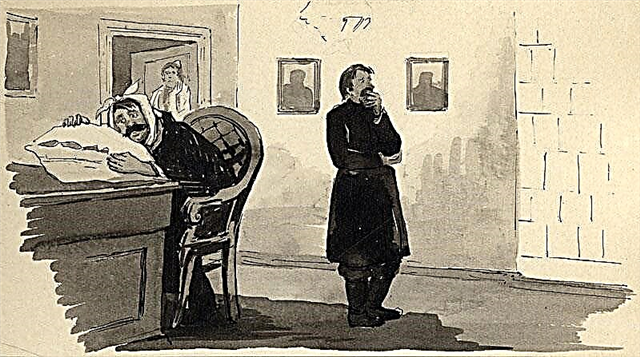
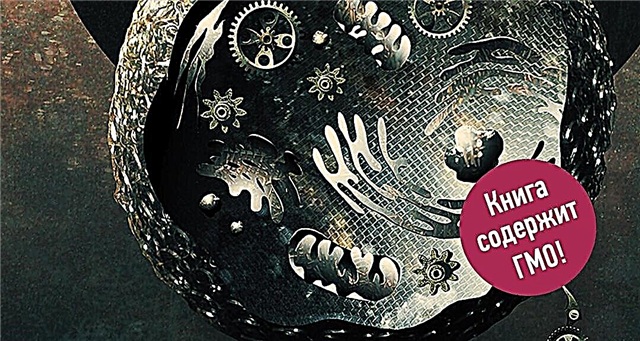 Biotechnology Sum
Biotechnology Sum Aniara
Aniara